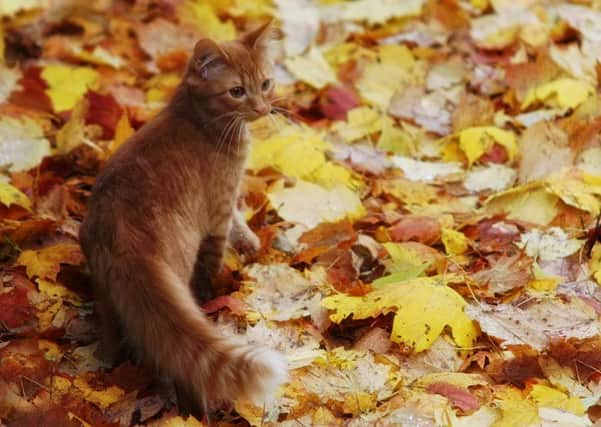Top tips from vets for keeping your pets safe in cold weather


Despite a mild start to autumn, cooler conditions will soon be taking over and, in turn, giving way to cold wintry weather, leading to difficult conditions for pets and their owners.
From keeping your dog within sight during foggy autumn mornings to keeping cats warm on snowy winter nights, the advice from vets will help you keep your pets safe.
Advertisement
Hide AdAdvertisement
Hide Ad“Seasonal weather provides pets and their owners with different challenges, but following simple pieces of advice can help provide both with a comfortable life,” said Dr Huw Stacey, director of clinical services at Vets4Pets.
“Changes in the outside temperature are a common issue linked to health problems in pets, but simply moving pets to the warmth of our houses isn’t always the answer.
“Dogs love going for a walk no matter what the season, but just like in summer when they can overheat, they can suffer from the cold in autumn and winter.
“Although cats can see better at night than humans, the dazzling lights of cars can distract them, leading to a potential increase in collisions with vehicles as the nights draw in.
“Small furry pets (rabbits, hamsters and guinea pigs) and reptiles (tortoises) particularly enjoy spring and summer outdoors, but will need extra care and a potential ‘house’ move to a warmer part of the home or garden.”
Cold weather pet advice
Dogs
• Both owner and dog should wear reflective clothing/collar when out on a walk
• Walking your dog in winter is good exercise for you and your pet
• Towel dry your dog as soon as you get home, paying particular attention to between its toes. You will need to wash them if they are very muddy
Advertisement
Hide AdAdvertisement
Hide Ad• Keep dogs away from ponds and lakes that are iced over. Thin ice may break under a dog’s weight
Cats
• Try to keep your cat indoors at night to reduce the risk of road traffic accidents
• Cats should be fitted with a reflective collar
• Microchip your pet to ensure it can be returned to you in case it gets lost
Small furries and reptiles
• Pets beds or hutches should be raised off the ground to prevent the base becoming too cold, damp and rotten, and bedding should always be fresh and dry as it will freeze overnight if even slightly damp
• Check if there is sufficient overhang from the hutch roof, to help protect the inside from driving winds, rain & snow – if not look at using a hutch cover
• Provide extra bedding for rabbits and other outdoor pets and be prepared to move them into a shed, garage or utility room for shelter
• If you can’t bring your rabbit or guinea pig’s hutch indoors, find a sheltered part of the garden or use a hutch cover
• Make sure their water supply is always unfrozen, using a bottle snug will help
Advertisement
Hide AdAdvertisement
Hide Ad• Don’t house pets, including birds, in greenhouses or conservatories due to the temperature changes
• If you move your rabbit indoors try not to put them too close to a heater or radiator as they suffer from heat stress very easily and can become very ill if they overheat
• Tortoise-owners should start thinking about hibernation preparation if they need it. Make an appointment with your vet if you would like advice on how to plan for this
• For tortoises not going into hibernation then ensuring additional heat and UV light sources are provided not only through the day, but as the temperatures drop, then providing heat at night